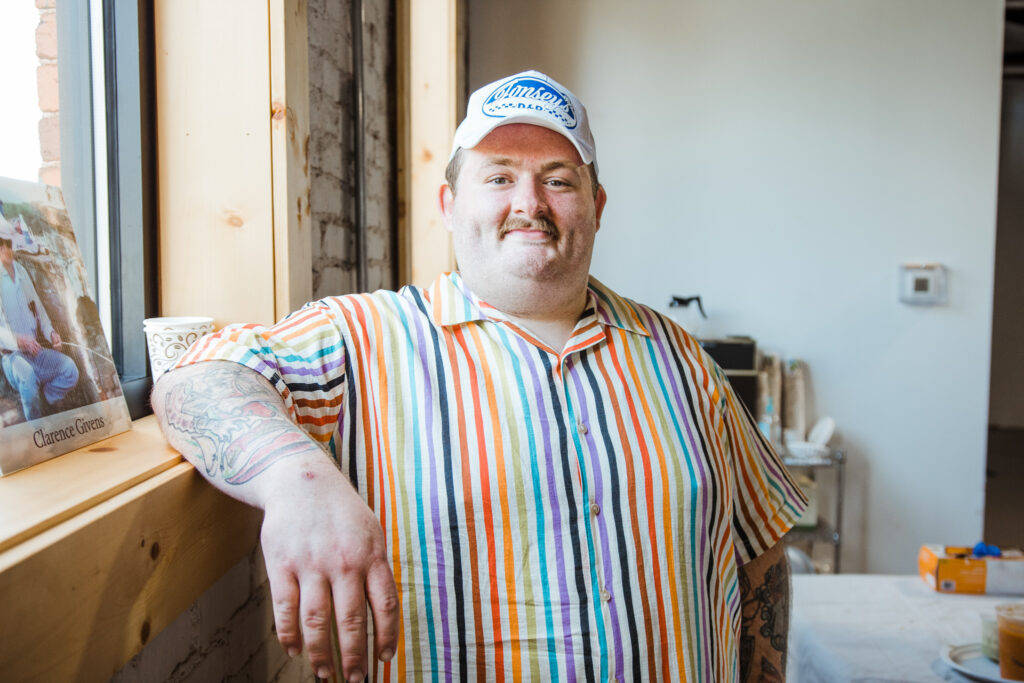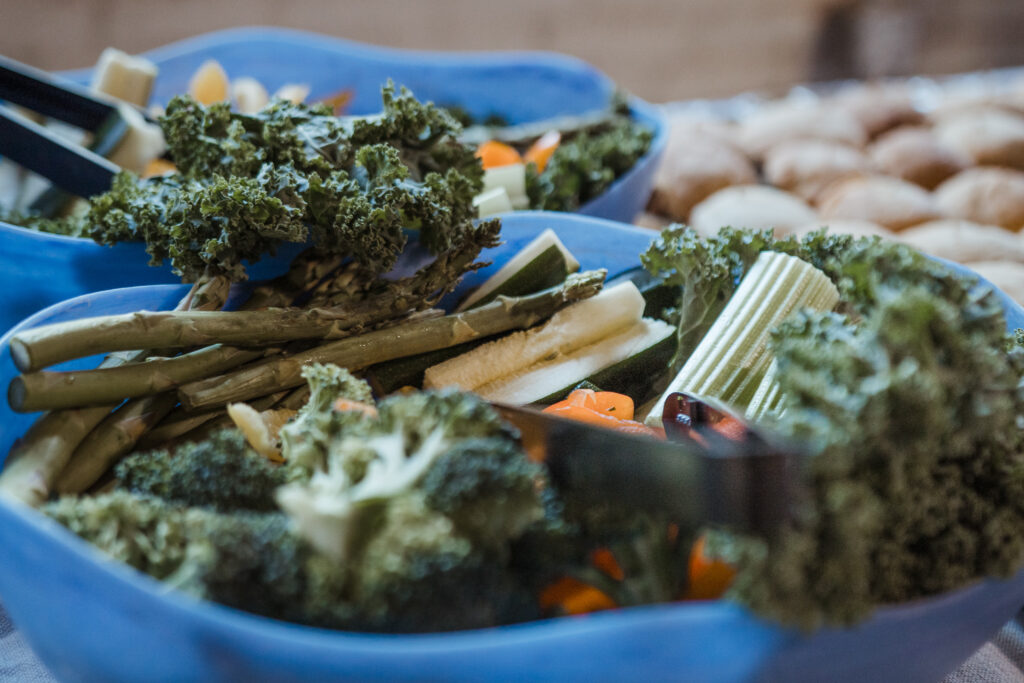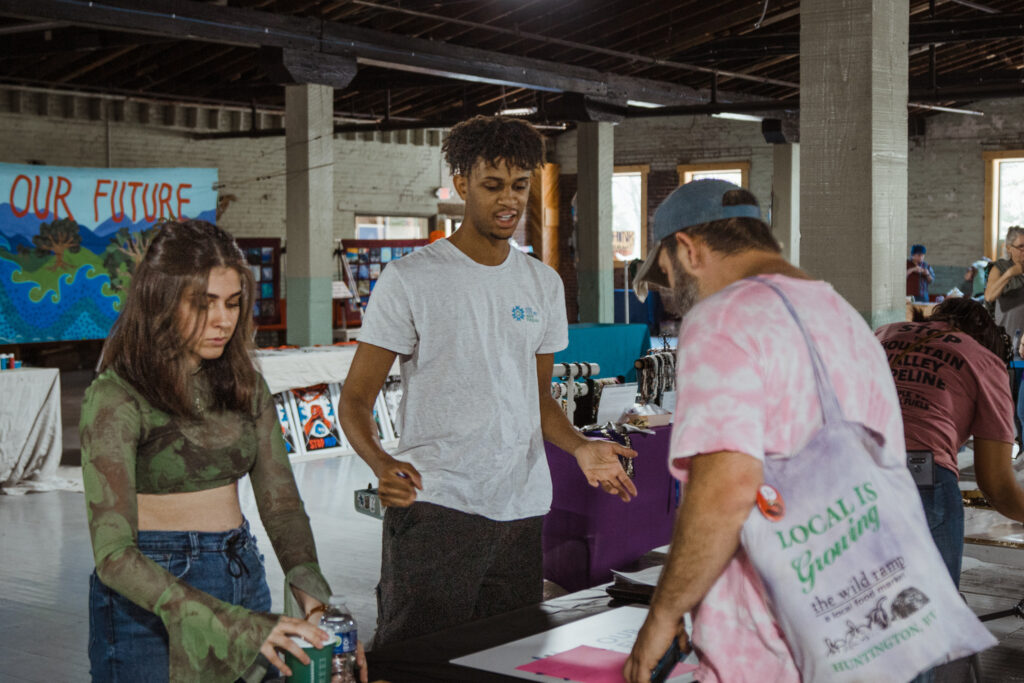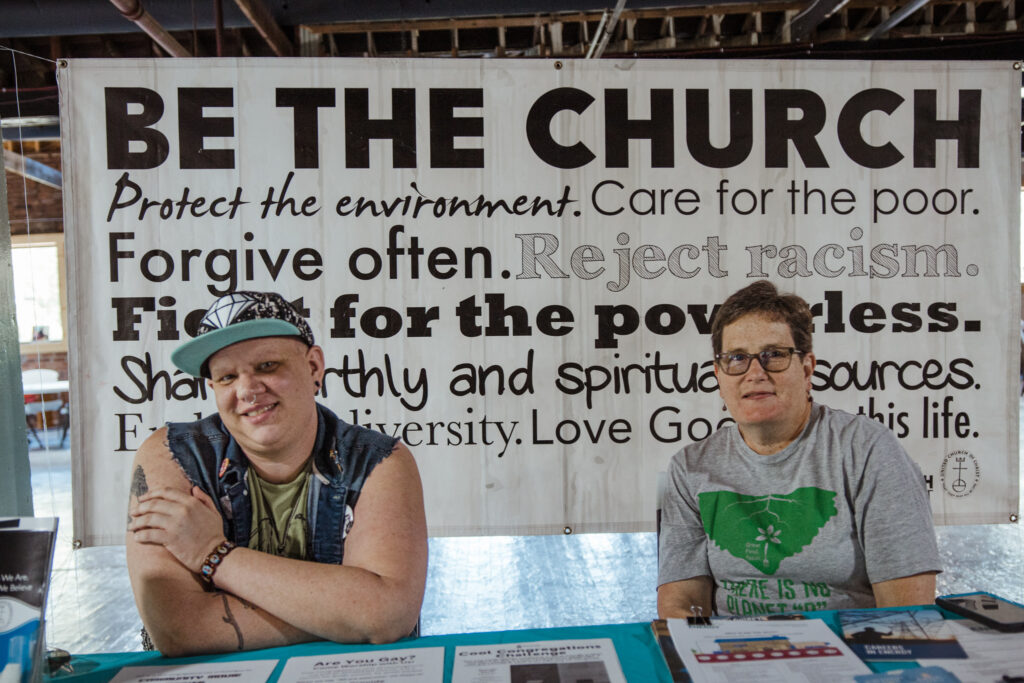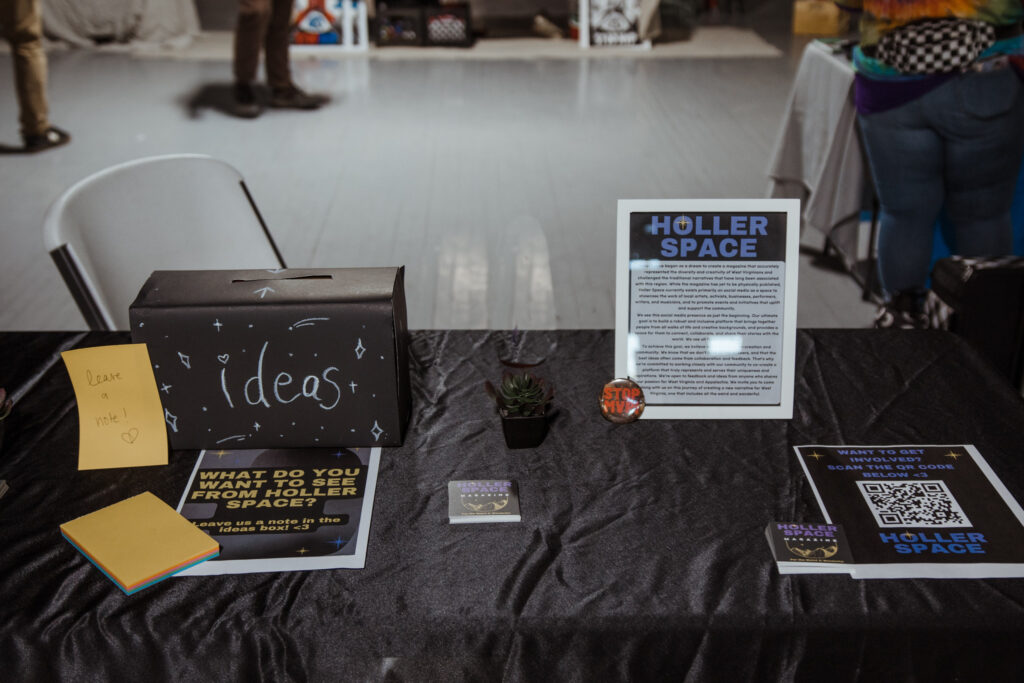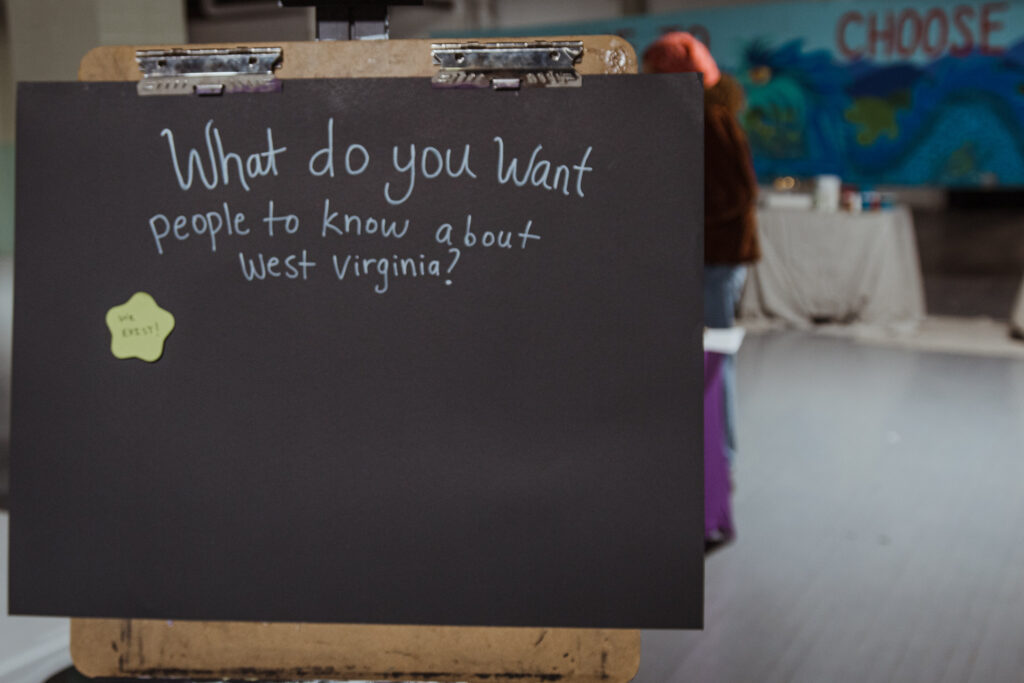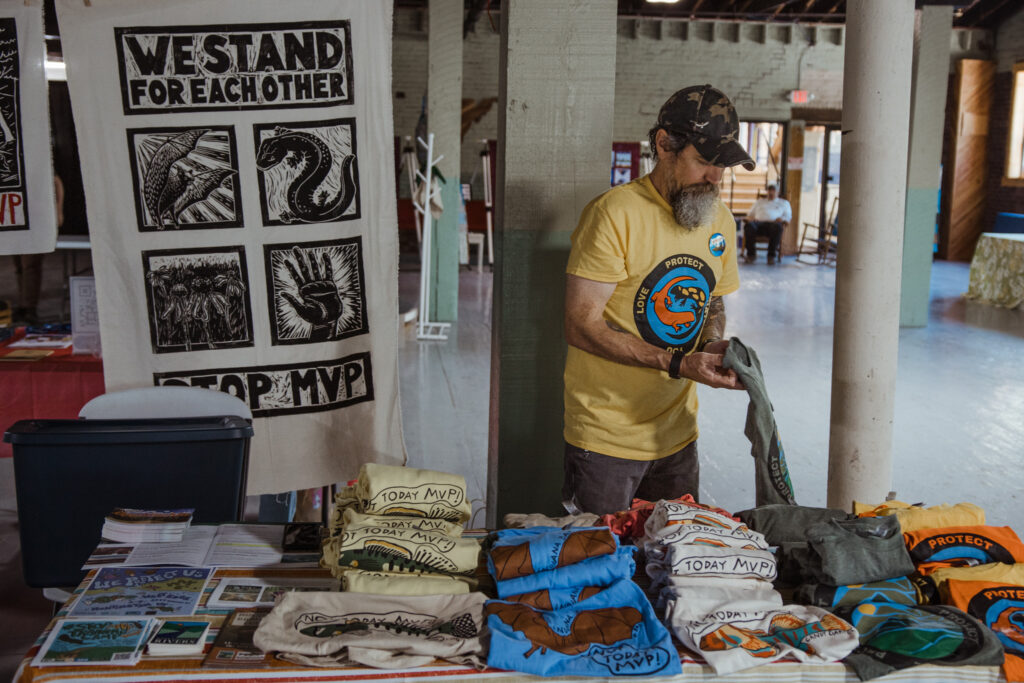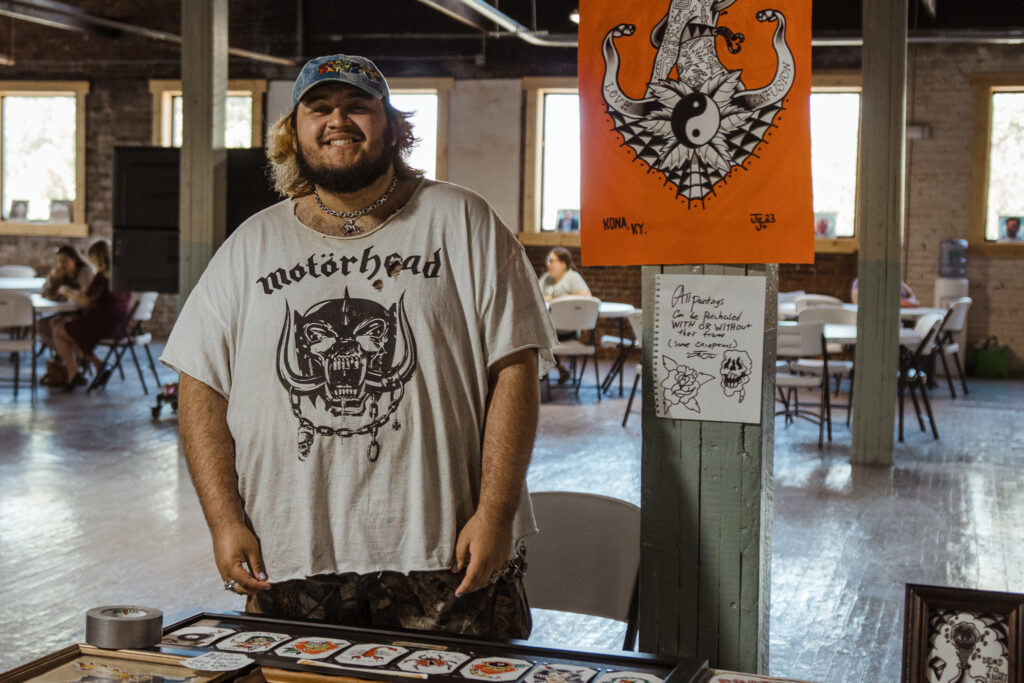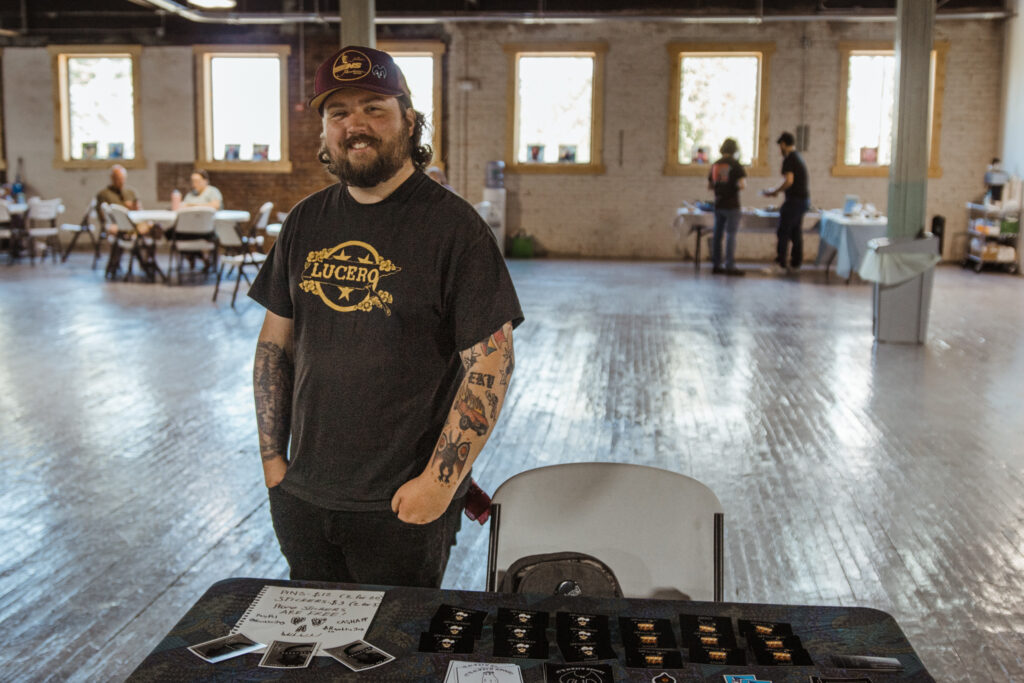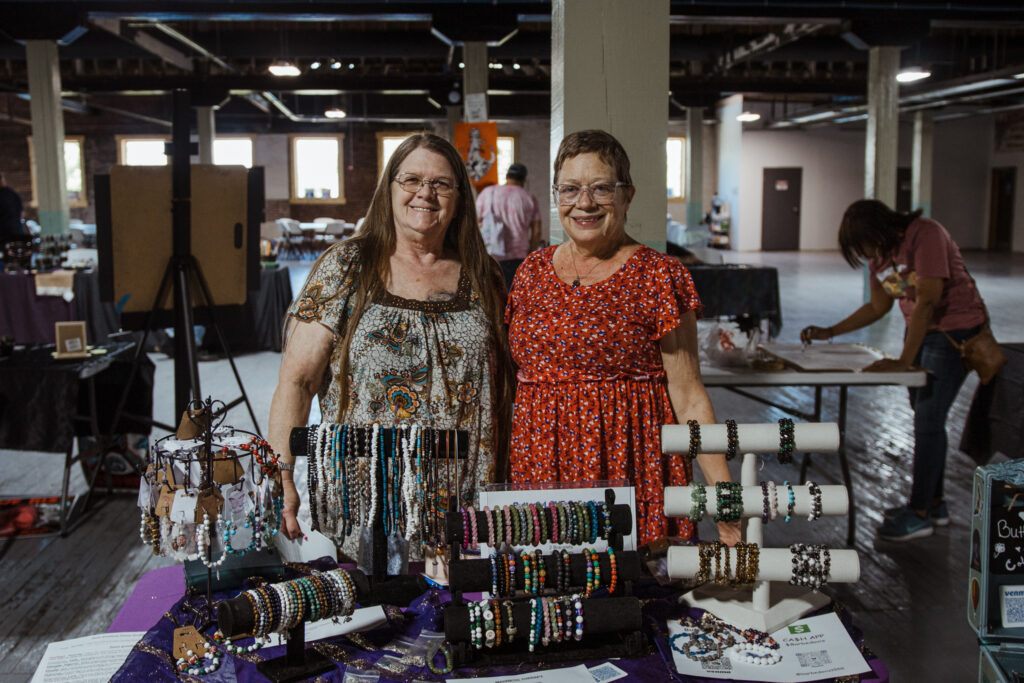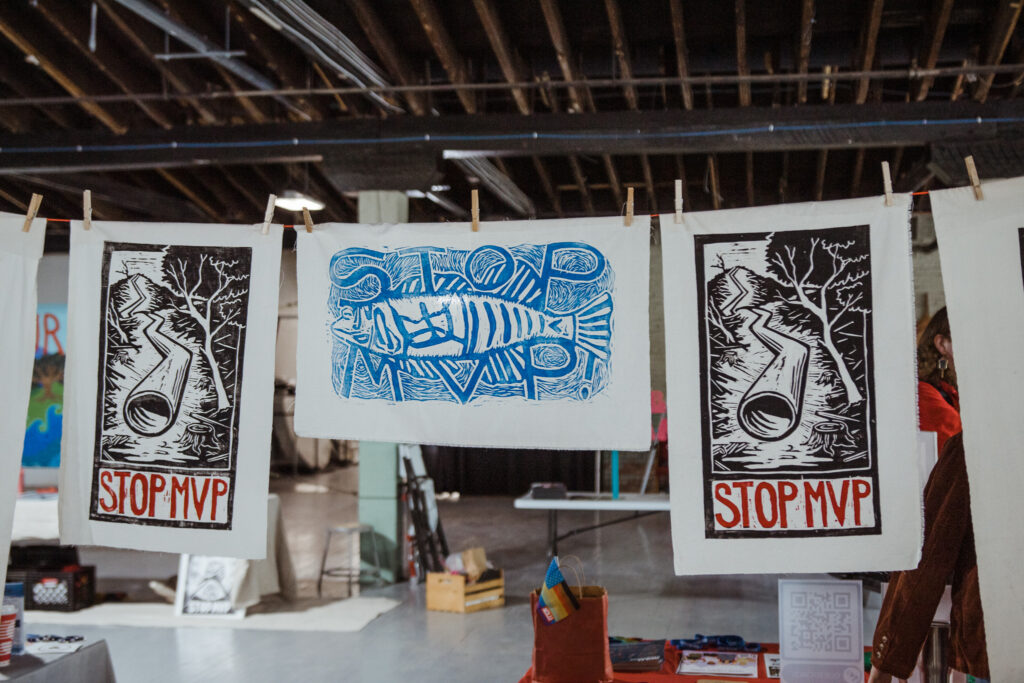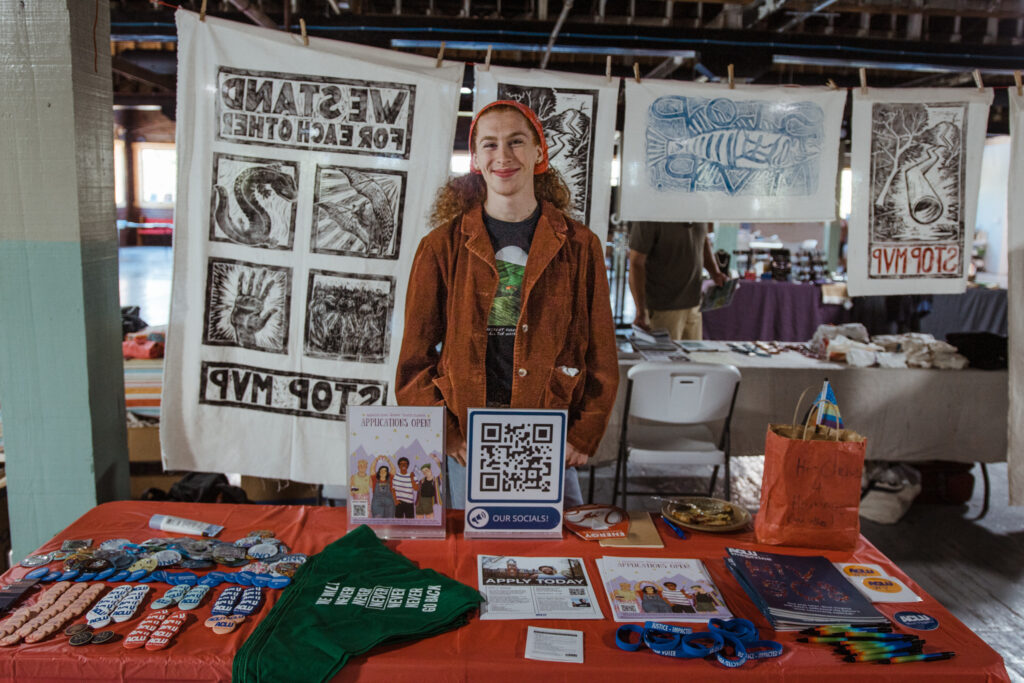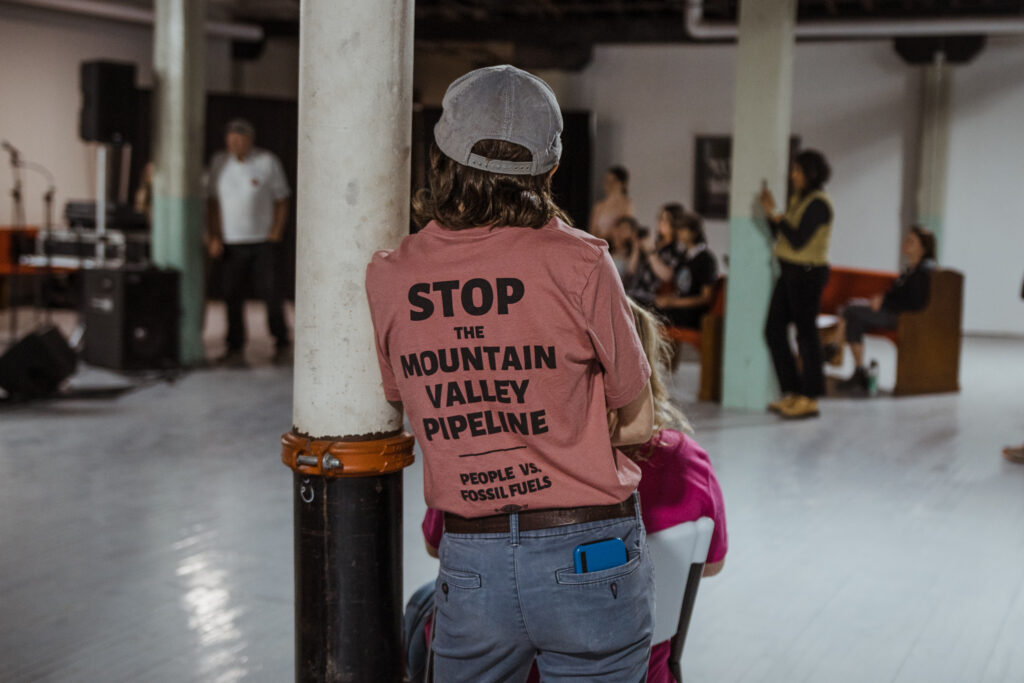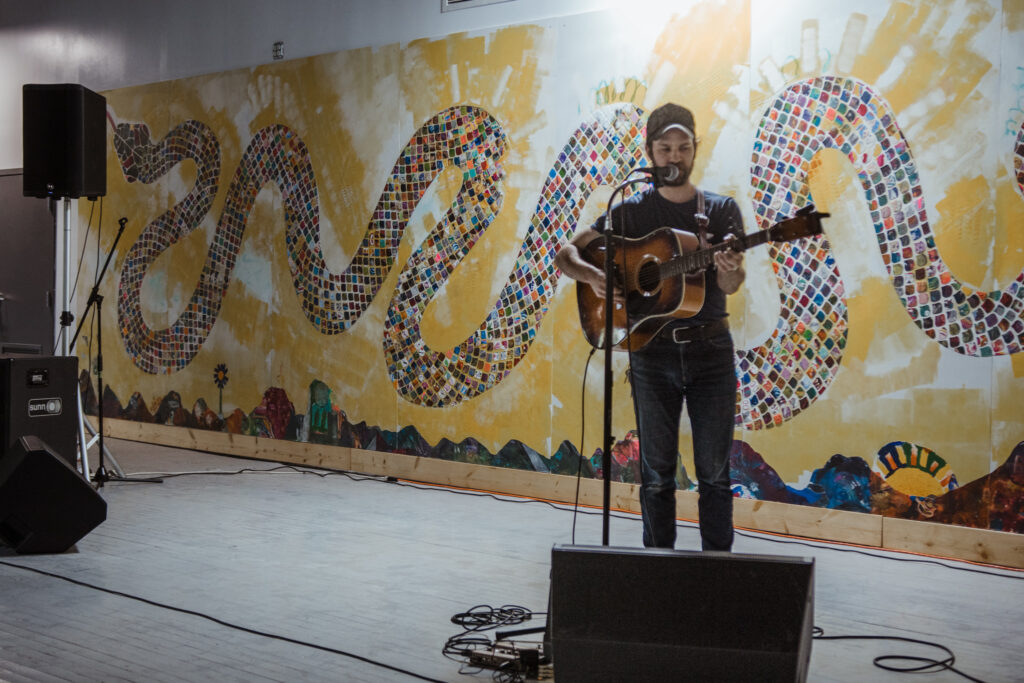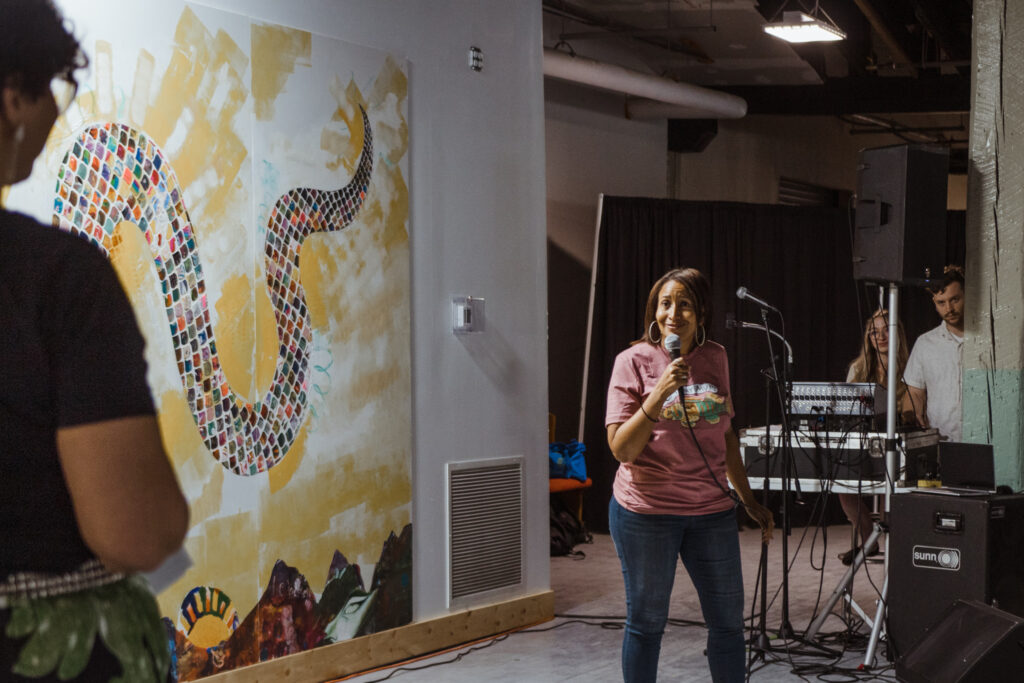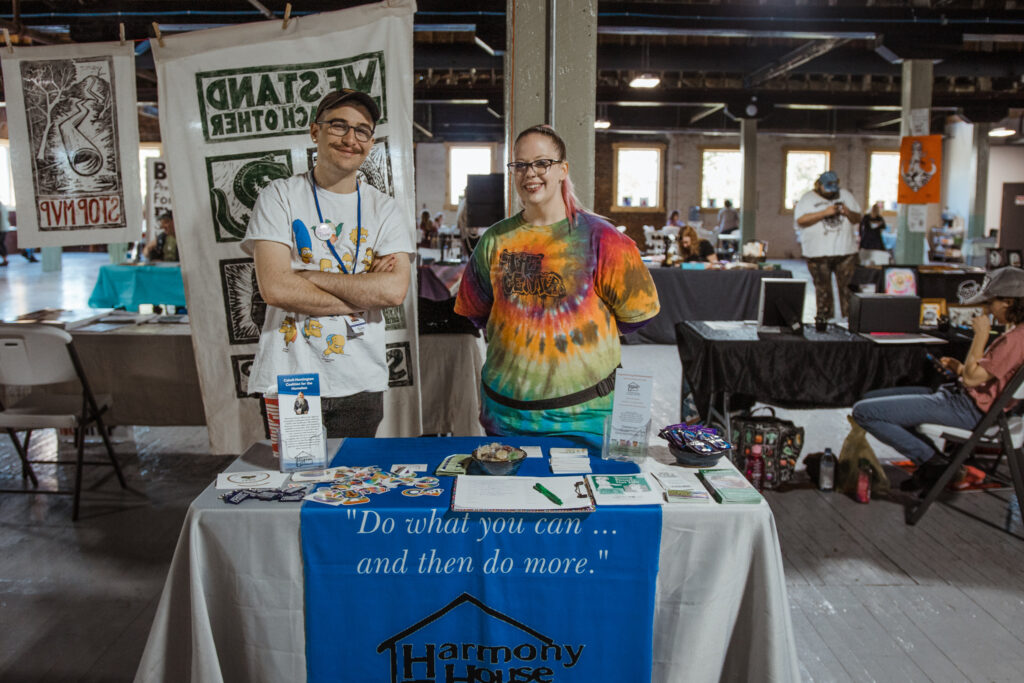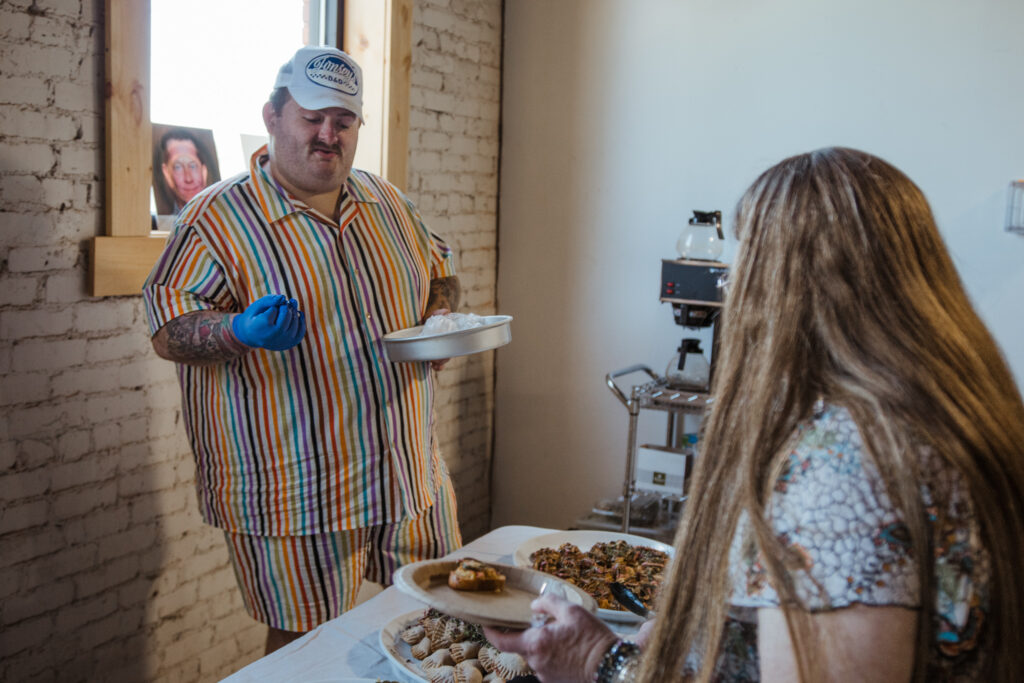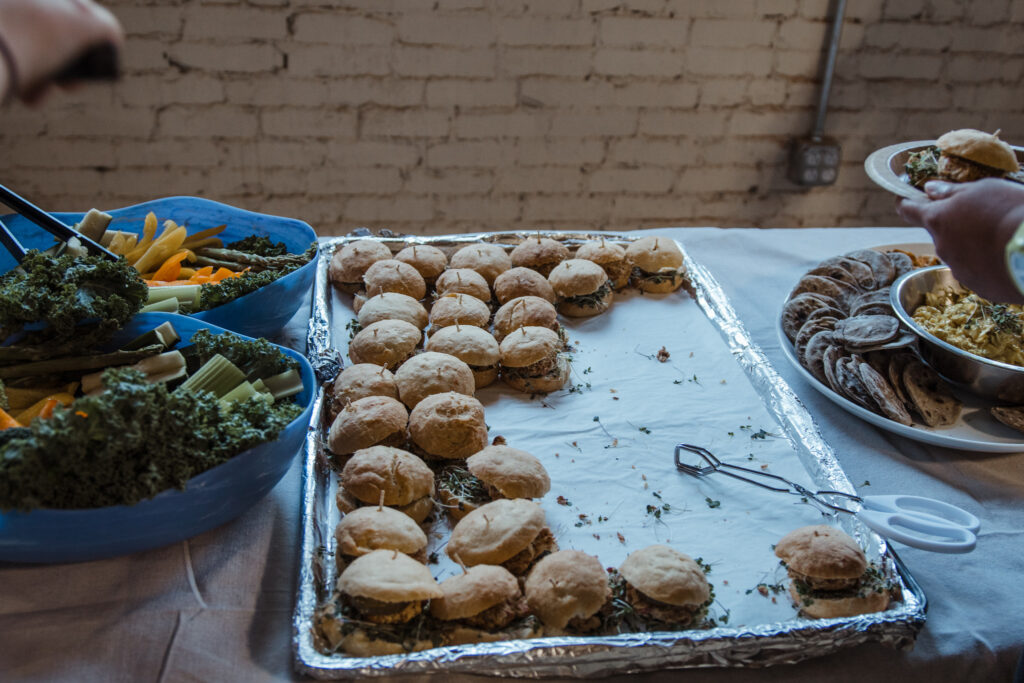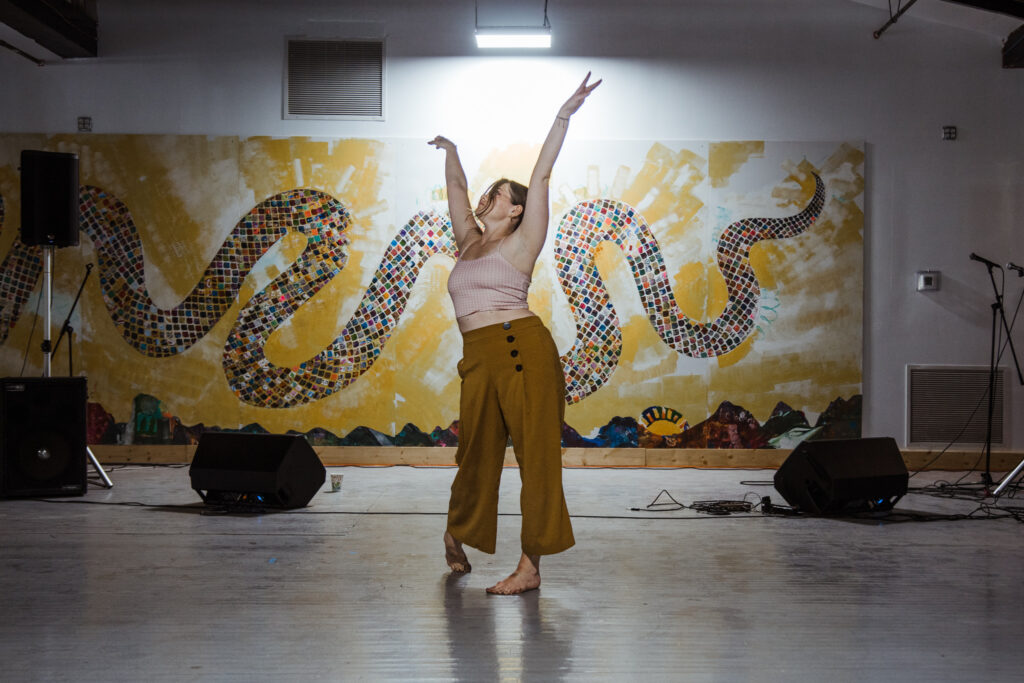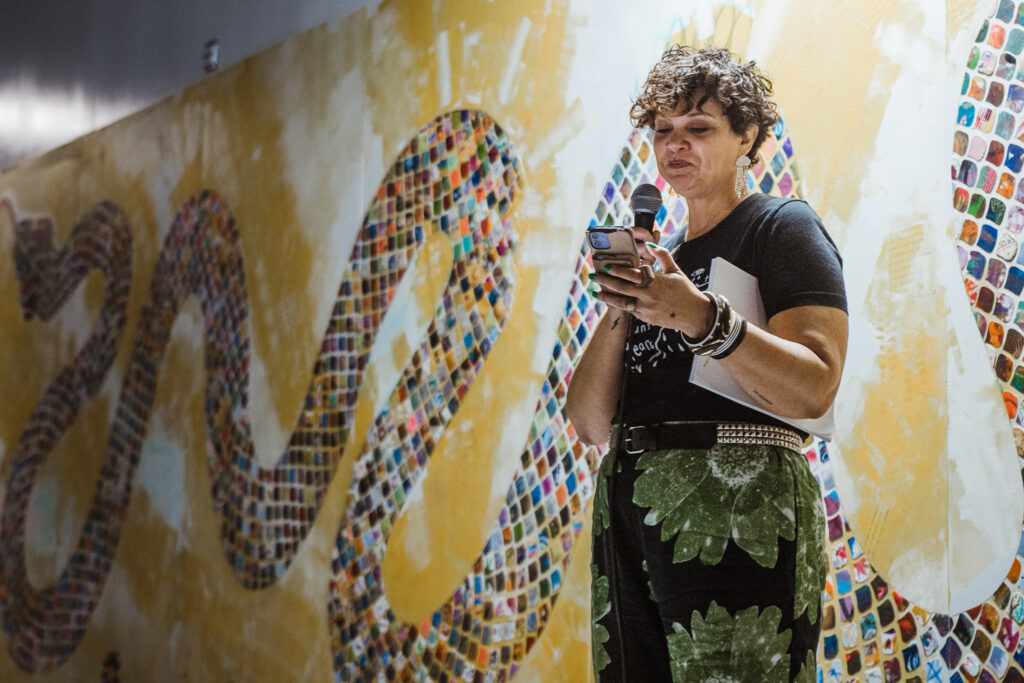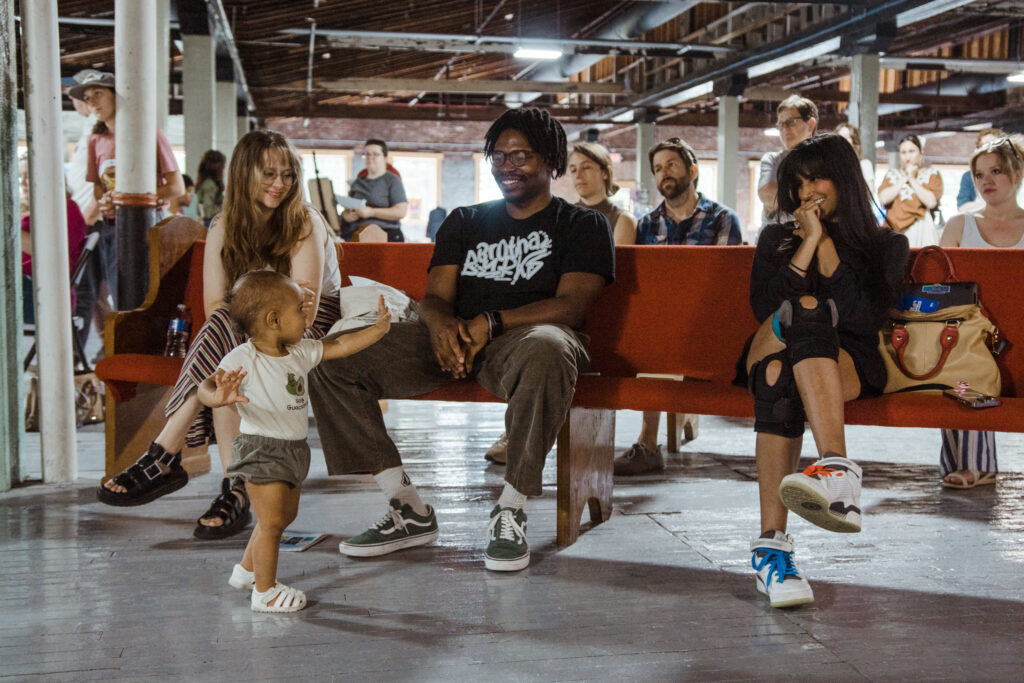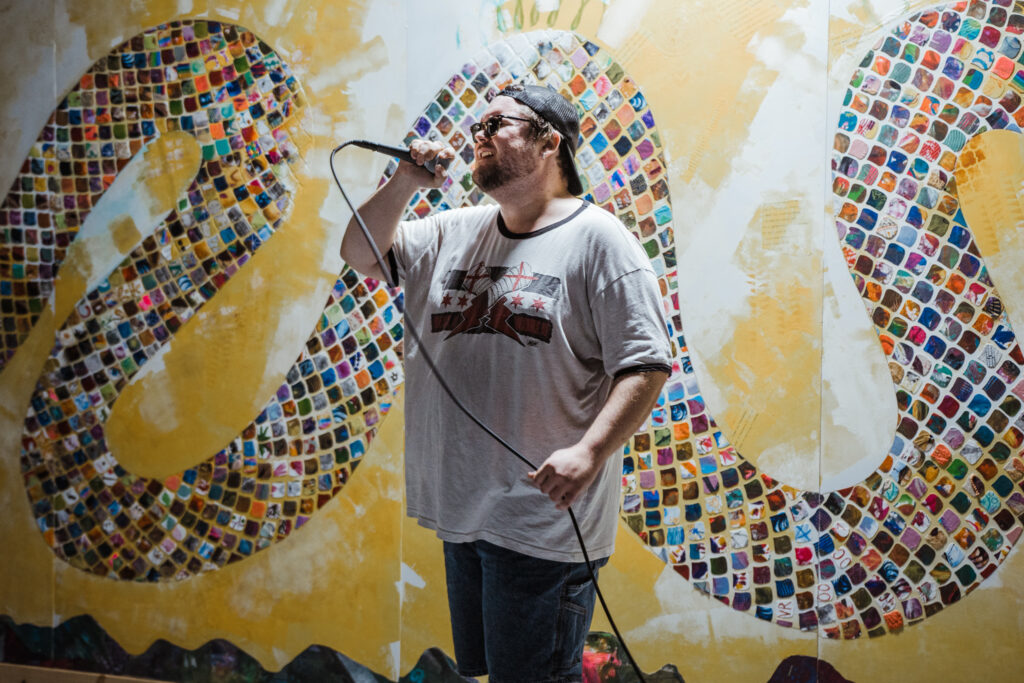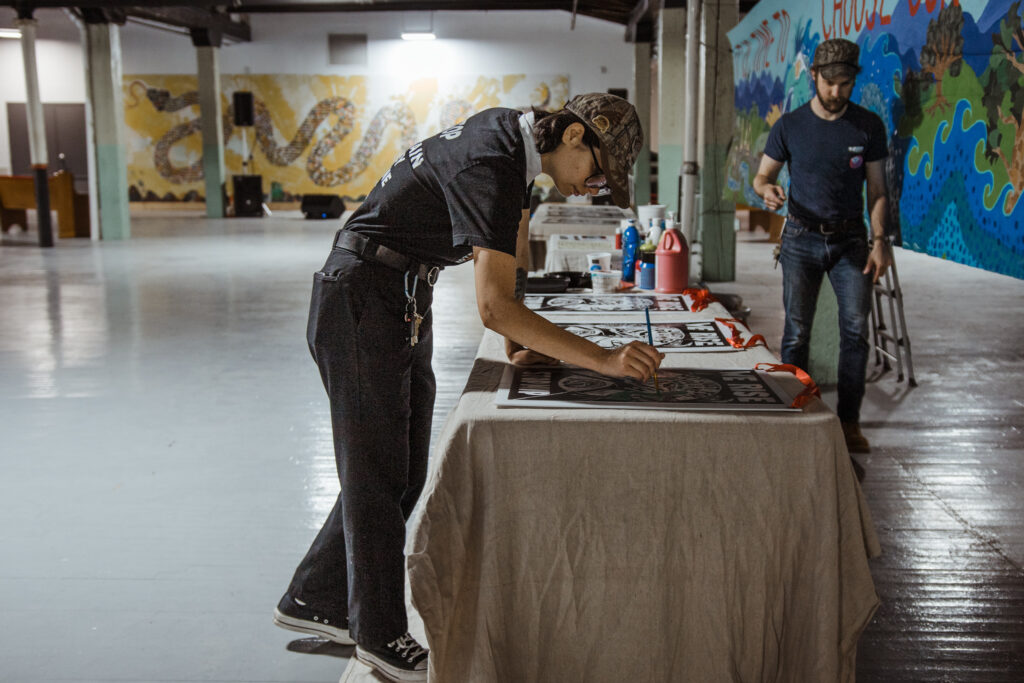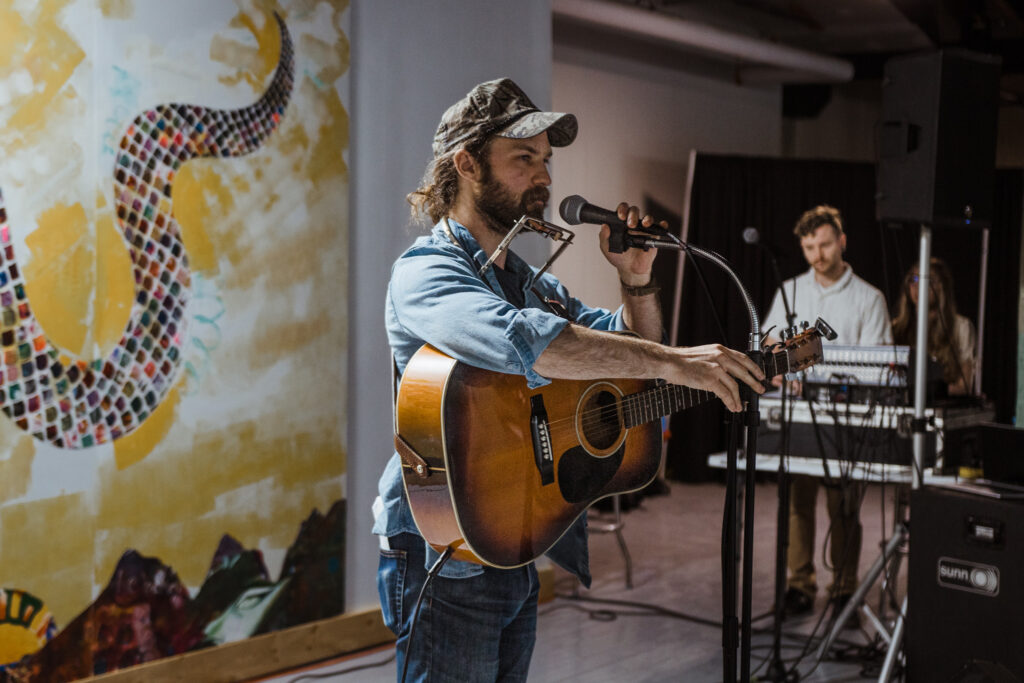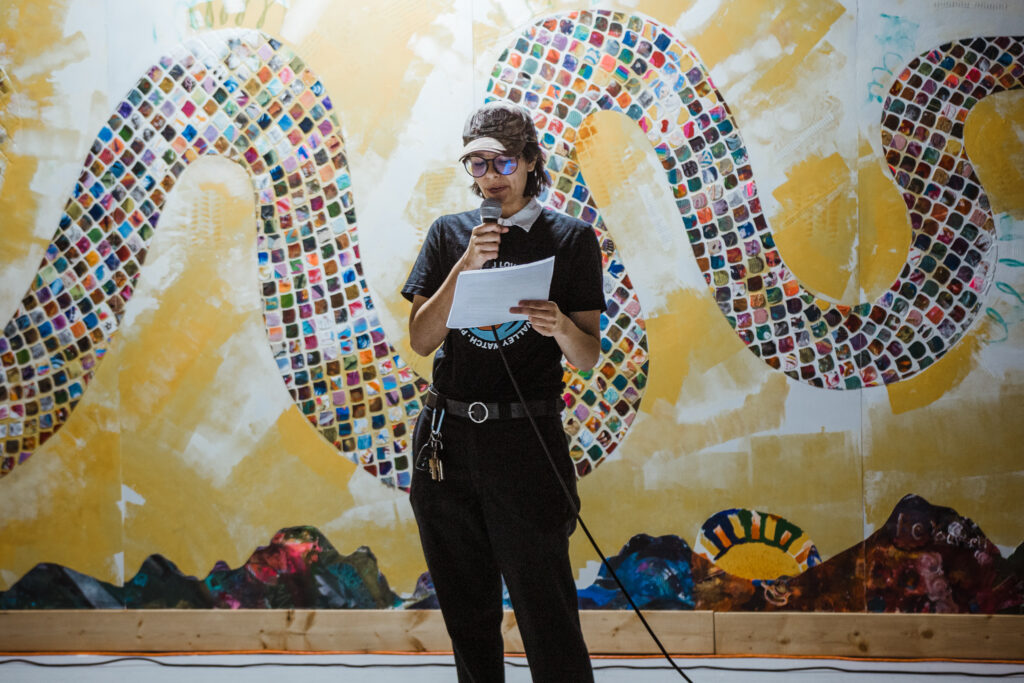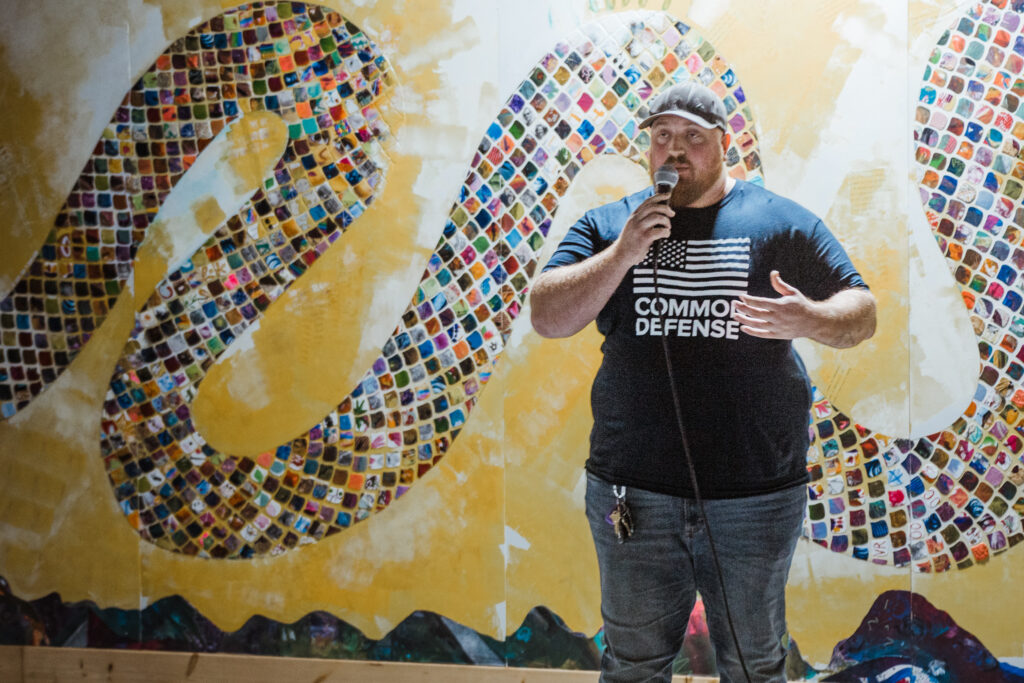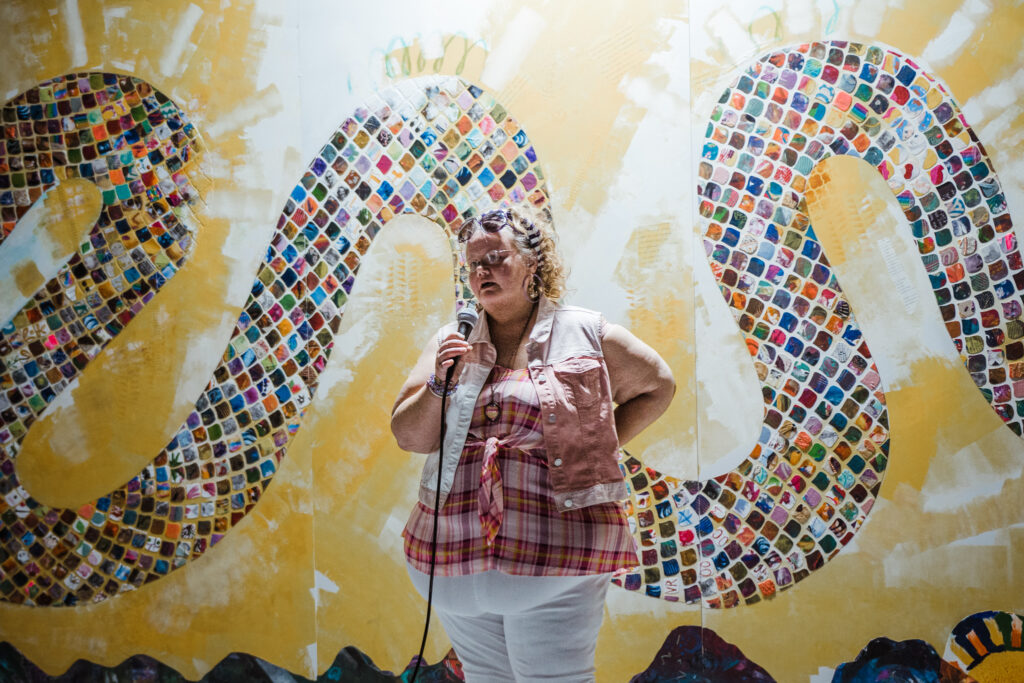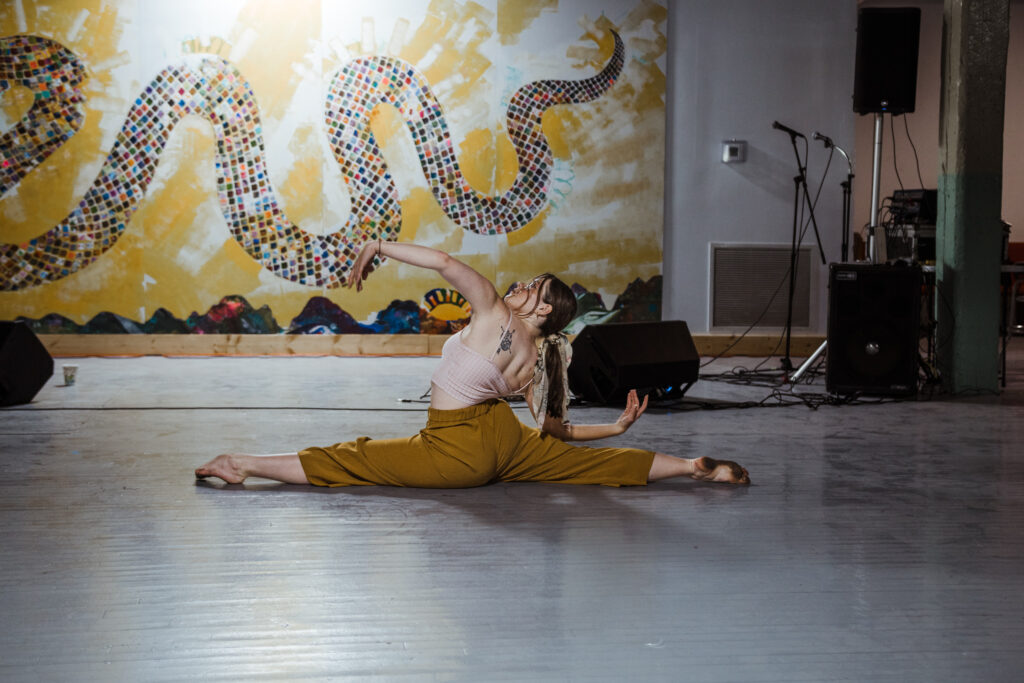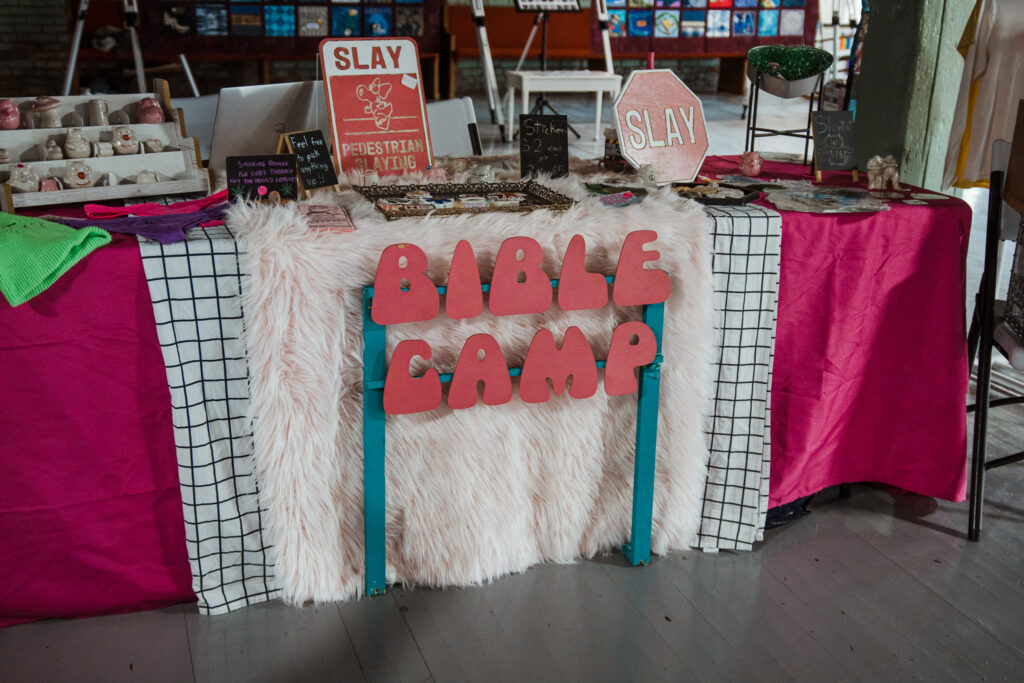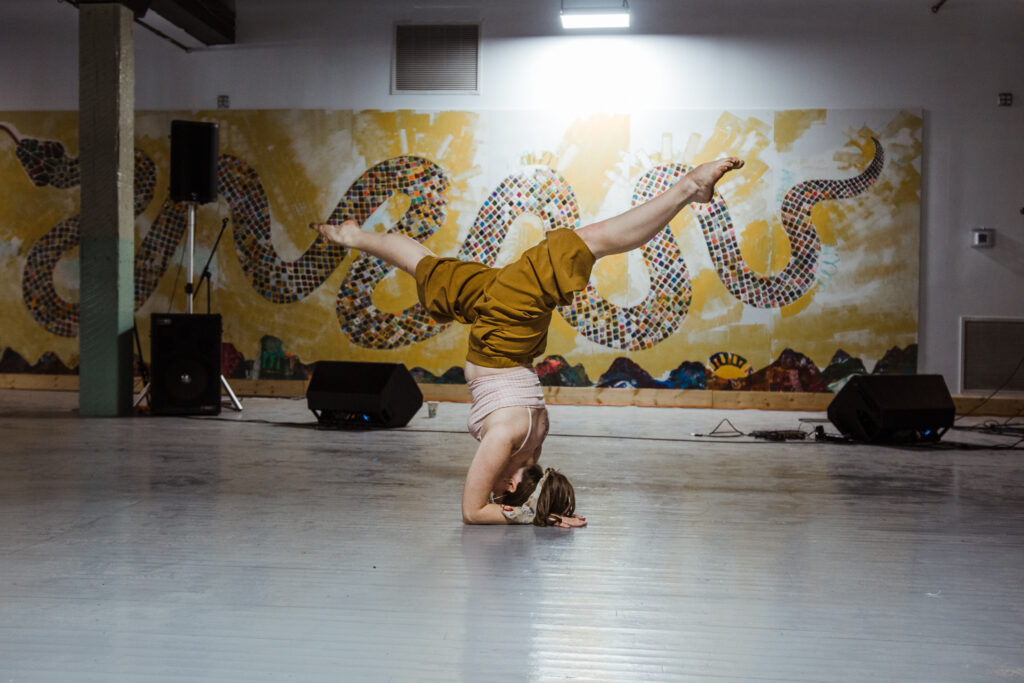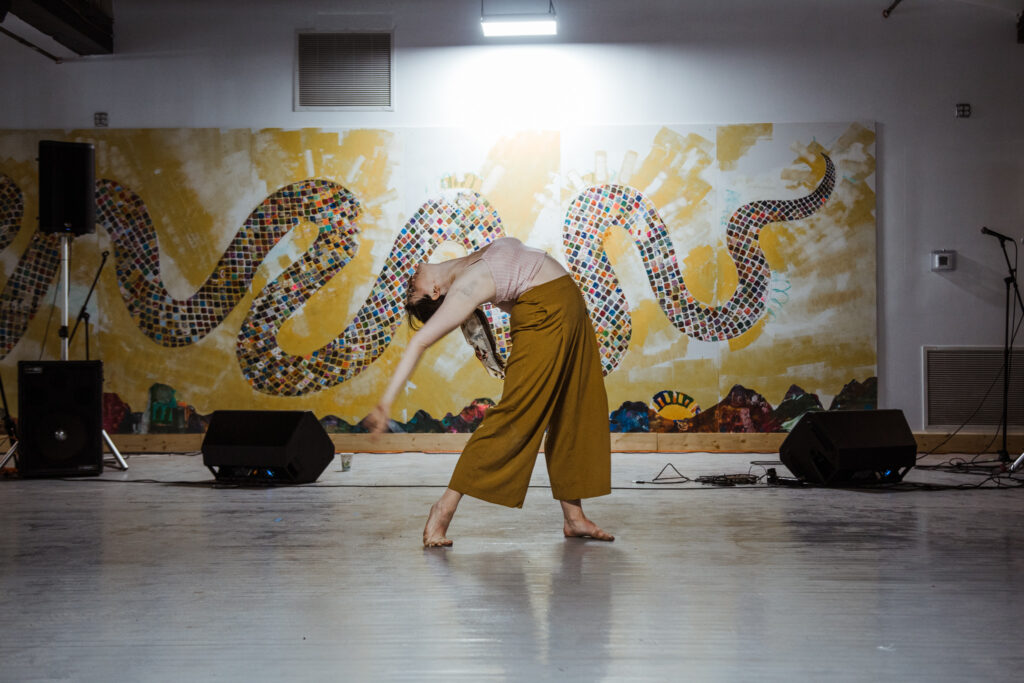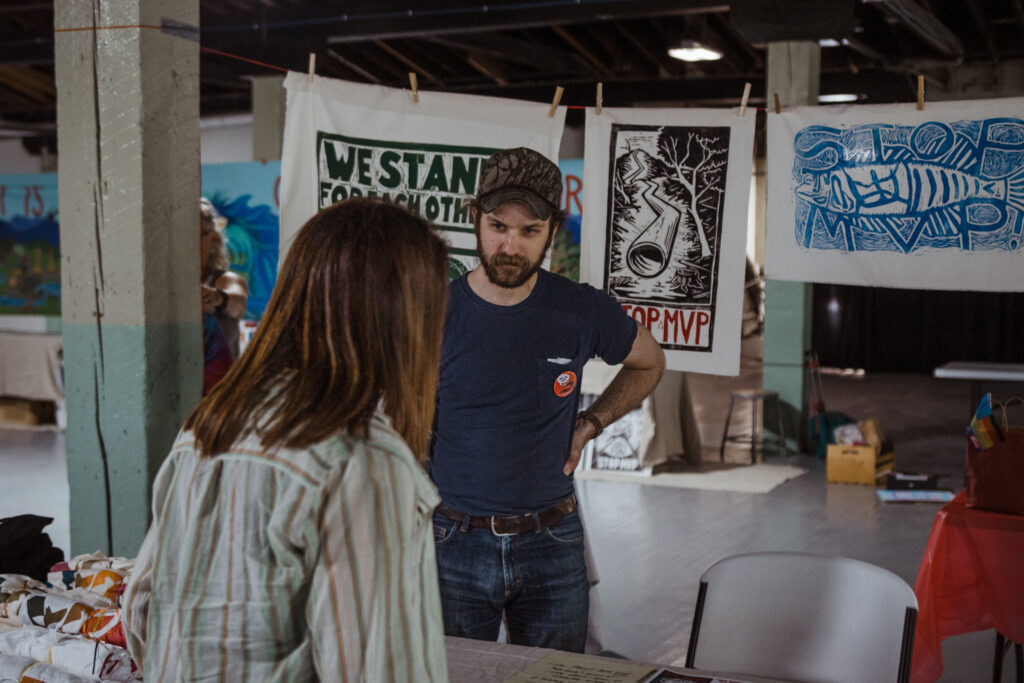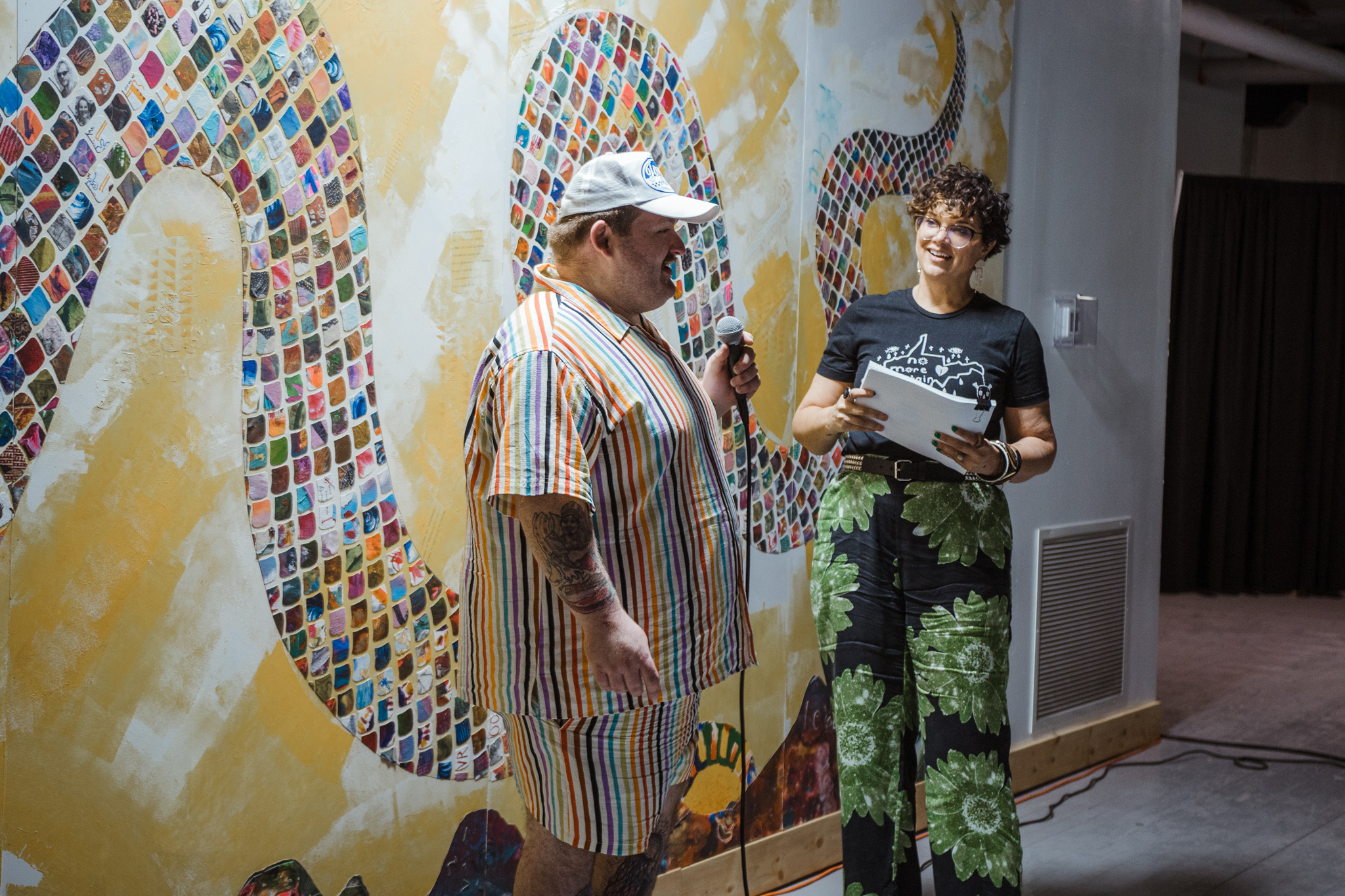The sun poured through the large windows at West Edge Factory on a beautiful spring Saturday afternoon May, 6, 2023 during We Protect Us: A West Virginia Art Movement Summit. The event was focused on the power of mutual aid and community with a heavy emphasis on environmental justice.
Artisans, performers, and mutual aid organizations set up in the factory offering a variety of goods and services to community members as well as an Eco Swap where folks could bring items that they wished to get rid of in exchange for something else in an effort to keep usable items from going into a landfill. The event was catered by Chef Kenneth Jones of Jonsey’s D&D. The whole afternoon the event’s attendees were buzzing with conversations about ways that they can make positive impacts in their communities and the value of solidarity when it comes to challenges that we face as Applachians. Additionally, folks were able to learn valuable community organizing skills such as zine and poster making.
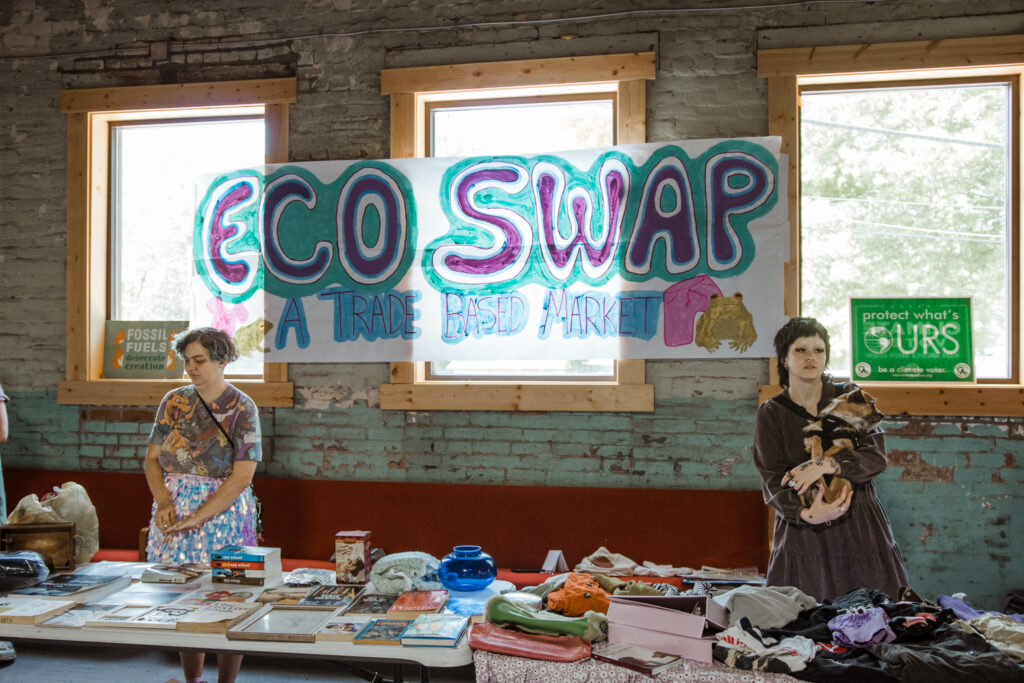
I sat down with Baleigh “Bae” Epperly (she/they) an organizer for the event and she spoke passionately about the importance of community and resistance in the face of oppression, a major theme in the scope of Applachian history. Bae is no stranger to community organizing and said that they have been organizing against the Mountain Valley Pipeline (MVP) since they were a student at Marshall University and while that effort was certainly a major component to the event she said that fostering a sense of community and solidarity was the overall objective. Bae said that she has felt strongly about environmental issues from an early age. Recalling a childhood memory of seeing Al Gore on the news speaking about global warming she said, “I just remember being in elementary school and being this young kid, and you know, you sort of question everything and I didn’t understand why adults weren’t taking this problem seriously. I remember hearing, we’re not going to have glaciers, it’s going to cause flooding, and all of these issues. And you know, they told us things like recycling helps. And so I became super interested.” Bae goes on to talk about how it can be discouraging to live in Appalachia sometimes because progressive values seem to be on the chopping block so frequently but wanted We Protect Us to capture a sense of joy despite it all. Bae said, “I love this event because not only can we grieve together, but we can celebrate joy too and I think joy is the most powerful form of resistance. So, I want people to have fun but also learn a little something and not feel alone.”
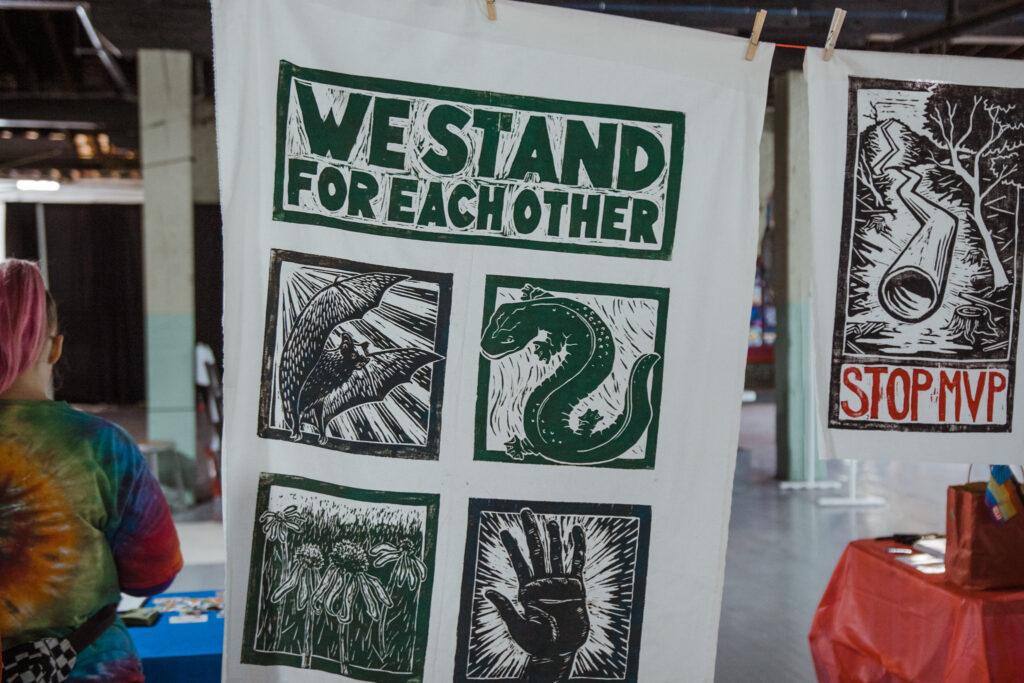
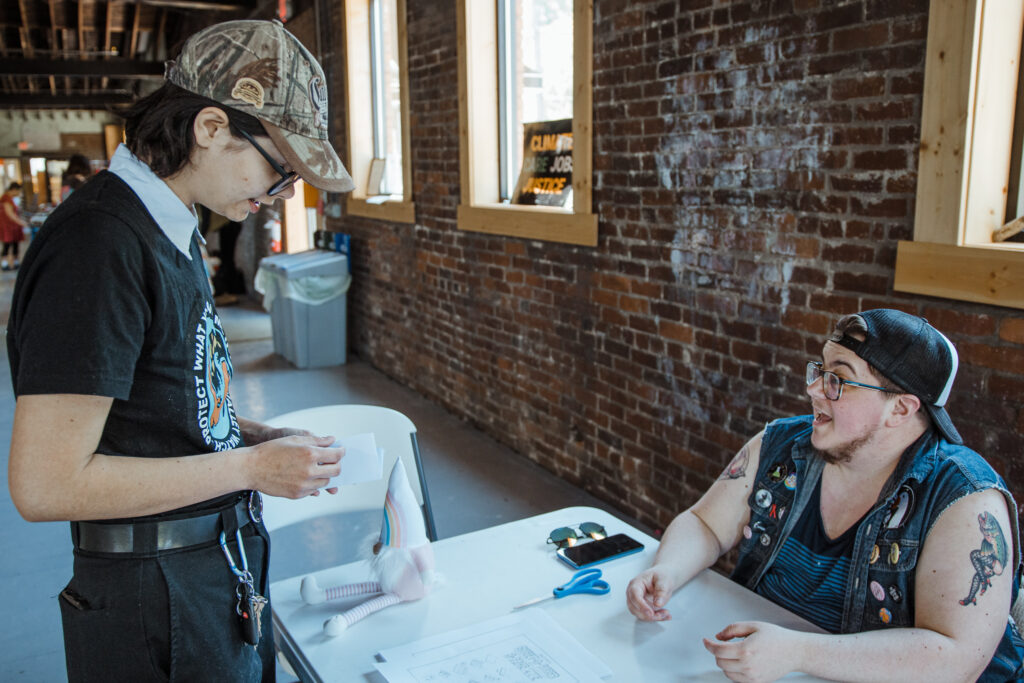
We Protect Us was organized in partnership with the Protect Our Water, Heritage Rights (POWHR) Coalition, an interstate environmental justice group representing West Virginia and Virginia and has been instrumental in MVP opposition. Russell Chisholm (he/him), managing director for POWHR, said he has always had an appreciation for the natural resources and species that make up his home in Appalachia but it wasn’t until the announcement of the pipeline until he got involved in this level of activism. Russel said, “I live in a community that strictly relies on groundwater, wells, springs, for household water for livestock, those kinds of things. So I started seeing announcements of meetings being called, these are the types of meetings that were being held in church basements and community rooms and those kinds of things and just felt moved to find out what was going on and educate myself and see where I could possibly help out pitch in.” Russell said that he hopes that the event encourages people to engage in a deeper way and to change the narrative that we typically see from major news outlets. He said, “And yet, right here amazing things are happening and people are trying to connect and they’re trying to lift each other up. That just rarely ever gets talked about and also, I think it strips away the idea that our region is like this monolithic culture because of the way people vote or another even more toxic attitude in my mind is that people deserve the harm that befalls them because of the way an election turns out or those kinds of things. We have to keep pushing back on that narrative as much as we can, because they’re just too many examples of good things that can come from gathering in this way, or speaking out on these issues and we’ll get there might take a long time, but we’ll get there.”
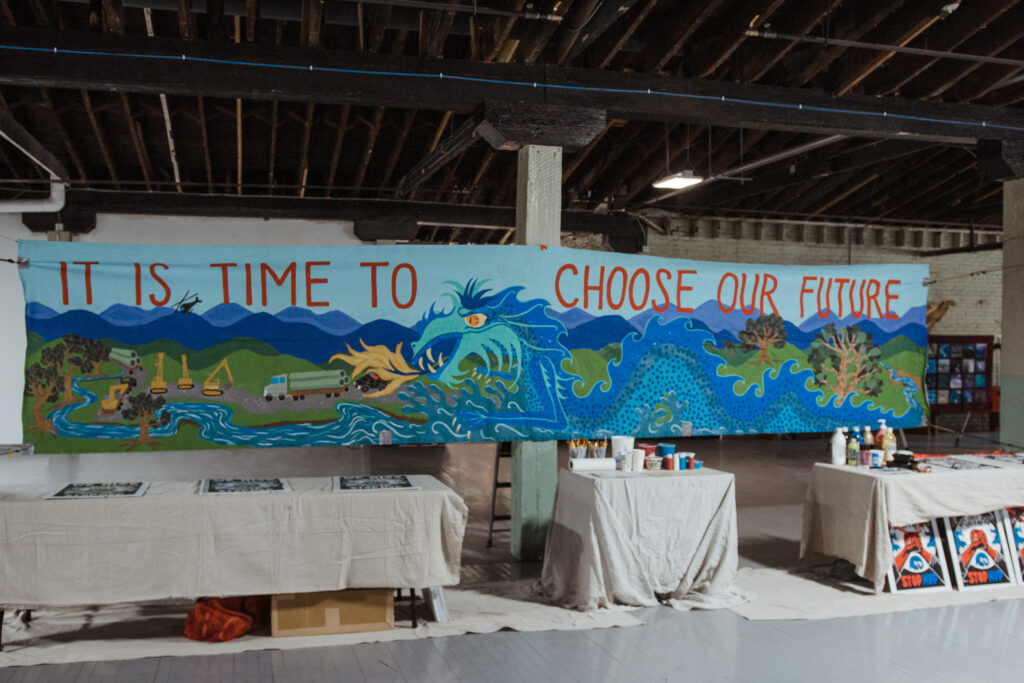
A showcase of Applachian culture was provided through a variety of performances and locally sourced food. Activist and artist Crystal Good (she/her) read an emotional poem with tears streaming down her face about a woman in the aftermath of a flood devastating her home. Crystal said, “I just was really, really, really happy to be invited here to read a poem, which sometimes I forget that I’m a poet, then I perform and that’s my way of telling a story of activism and communicating information.”
Chef Kenneth Jones (he/him) provided a delicious spread of unique dishes made with locally sourced ingredients. “Sustainability is at the forefront of what I try to do. Things like shopping with local farmers, composting my vegetable scraps for the next year’s gardening season, making lasting impressions and friendships with people also engaged in the food community, and investing in the things I enjoy instead of just taking.”
With all of the negativity that often gets associated with West Virginia and Appalachia as a region, it’s important to be reminded that there are people here who are invested in the future and that voices together in unison are louder than one. We Protect Us provided not just resources for folks to become engaged with the future of their communities, but a beacon of hope for a better tomorrow.
